CEM Grants 101
General Proposal Guidelines
Every sponsor (and even different opportunities from the same sponsor) will have different requirements. This document is not meant to be a substitute for any sponsor guidelines or instruction, it is meant to be a basic reference guide for CEM’s and UND’s processes of approving, submitting, and administering grants from external sponsors.
Frequently Asked Questions
CEM’s Grant Prep Assistant, Elle West, sends out a CEM Grant Opportunities Spotlight newsletter about once a month by e-mail. If you have not received this, make a request to Jordan Eberhardt to add you to the UND CEM Faculty e-mail list. Research & Sponsored Program Development (RSPD) and the VP for Research & Economic Development (VPRED) will also send out e-mails highlighting internal opportunities or competitions for opportunities with limited submissions.
You can run searches or set up personalized searches with automated notifications on Grants.gov or Grantforward.com. Contact your Pre-Award Team for assistance.
Don’t forget to look at local/state opportunities such as the Ag Products Utilization Commission, ND Corn Council, ND EPSCoR, ND Soybean Council and ND Industrial Commission.
No. You will need CEM and UND’s approval before submitting, and in many cases the Sponsored Program Officer for UND is required to submit the proposal on your behalf. If you plan to submit a proposal, please complete the CEM Proposal Intake Form to notify CEM's Pre-Award Team.
If the opportunity limits the number of submissions by institution, the process for an internal competition will be issued by the VPRED’s office in order to determine who will be selected to apply from UND. If you are interested in a limited submission, notify your Pre-Award Team so the VPRED’s office can determine the level of interest and potential number of applications.
A proposal must be created and approved within Novelution. Once a Proposal Intake Form has been completed, CEM’s Pre-Award Team will set up the Novelution proposal and let you know which sections you will need to complete. Relevant Chair, Dean and RSPD staff will automatically be selected by the system based on who is listed in the Personnel section. The Novelution proposal must pass all automated validations and include, at a minimum, the following:
- Statement of work
- Budget
- Budget justification
These files are required by Novelution even if they are not required by the sponsor! For example, some sponsors do not require a budget justification but you still must write one for UND’s approvals.
Sponsor-specific formats for the above files are generally acceptable. If the sponsor does not specify the format for the budget, it is recommended to use the Award Budget Setup (ABS) form, as it will eliminate the step of transferring the budget from your format to the ABS format if the grant is awarded.
If you have a subaward in your proposal, in addition to whatever is required by the sponsor, UND requires an Information & Compliance Form, a statement of work (what they will do in the project), a budget, and budget justification from the subaward organization for Novelution. Please be sure to note any subawards in Question 9 of the proposal intake form.
If you are the subawardee on a proposal, please answer “Yes” to Question 10 in the intake form and note the lead applicant organization. The pre-award team will need this information to set up Novelution properly.
Additional requirements may exist depending on the contents of your proposal such as: letters of commitment or cost share letters. Letters of commitment confirm to the sponsor that the signer is aware of the project and agrees to work on it if funded. Sponsors may specify the text or the format of the letter. Cost share letters are letters from an organization that will be providing cost share, stating what is being provided and the total value.
UND has a requirement that you must have at least 2% effort on a project to be listed as the PI (exception for equipment grants).
Submit the Novelution proposal for approval one week (five business days) before your deadline! Your deadline may be the day you need to submit to the sponsor or if you are a subaward, the day you need to send your files to the Prime Awardee. If you are submitting to an opportunity without a deadline, it’s best to list a deadline you would like to submit by.
The CEM Pre-Award Team and RSPD office can automatically access CEM proposals in Novelution. Co-PIs can work in Novelution once they have been added in the Personnel section and given edit permission.
You can also provide proxy access to others at UND by clicking on your name in the upper right-hand corner of the Novelution website and clicking on ‘proxy access’ in the drop down and follow the steps from there. A proxy will not be able to access an existing proposal in Novelution, but they will be able to create new proposals on your behalf.
In Grants.gov, your Pre-Award Team Member or another party can create the workspace for you (which will give them access) or you can add others to an existing workspace by e-mail.
Research.gov requires the PI to create the workspace. To add co-PIs, senior personnel, Pre-Award Team Member, go to:
- Senior Personnel Documents
- Manage Personnel and Subaward Organizations
- Manage Personnel” > then pick:
- Add co-Principal Investigator
- Add Other Senior Personnel
- Add other Authorized User
People can be added by e-mail or NSF ID. In order to be added as a Co-PI, the users NSF account must be set up with the PI/Co-PI role. Contact Karen Katrinak in RSPD or CEM Grant Prep Assistant for more detailed instructions or help with any of the above.
Federal submission websites (Research.gov, Grants.gov) must be submitted by the RSPD Proposal Development Officer (Karen Katrinak). She automatically has access to proposals in Grants.gov created under UND (which should be the default for your account). For Research.Gov proposals, you have to share the proposal with her. In the proposal, look for the teal "Share Proposal with SPO/AOR button" on the left side of the screen.
Some federal proposals are also submitted to the agency without RSPD needing to push the submit button. For these, the PI or designated individuals will create the submission and submit it directly to the agency through their respective submission portal. In these situations, most sponsors require documentation that your proposal has been approved by your institution. Whatever form is requested by the sponsor (signed budget form, specific letter) should be in your Novelution proposal for RSPD to complete after the approvals.
E-mail submissions are typically the responsibility of the PI – you will receive an e-mail from RSPD once you have approval to submit.
Yes. Complete the CEM Proposal Intake Form, including budget details, and your Pre-Award Team member will develop a budget for you.
Yes. Complete the CEM Proposal Intake Form, and answer the question “Would you like your proposal reviewed and edited by CEM's Technical Writer/Editor (Dr. Anna Crowell)?” with “Yes.” Dr. Crowell will contact you to discuss the editing process.
Indirect costs are UND’s background/non-specific costs of conducting research. (Examples: Overhead, administrative staff, heating, electrical.) Most projects will use the on-campus research rate of 41% of the Modified Total Direct Costs. MTDC are the Total Direct Costs of the project minus individual items of equipment $5,000 or greater, tuition remission, participant support costs, and subcontracts in excess of the first $25,000 for each award. Contact your Pre-Award Team for help determining your Indirect rate and applying it your budget.
All proposals must include Indirect Costs unless one of the following are met:
- Indirect Costs are not allowed by the sponsor (or only allowed at a specific rate). The PI will need to provide evidence of this.
- You are using forgone Indirect Costs as cost share.
In both of these cases, any projects over $100,000 need to seek VPR approval by submitting an Indirect Cost Waiver/Reduction Form.
- Students (Graduate or Undergraduate): 0.5%-1%
- Staff: 30-50%
- Faculty: Listed below are averages, but Pre-Award Team can look up an individual's
exact rate during budget creation.
- Summer: 21-30%
- Academic year: 25-45%
- Undergraduate: the PI can determine the hourly rate they would like to pay, $15 is recommended.
- Graduate: Academic year 2024-25 CEM Recommended Minimum Rates:
- Masters Student
- 1/4 time: $1,170/month
- 1/2 time: $2,340/month
- PhD Student
- 1/4 time: $1,325/month
- 1/2 time: $2,650/month
- Masters Student
- Specific Staff or Faculty: Pre-Award Team will identify salary information for individuals named in your proposal/budget. Typically, you will only name a specific person if they are a PI, Co-PI or Key Personnel in your proposal.
- Generic Staff or Faculty: Pre-Award Team will use an average based on other staff and faculty in similar roles.
Note: Salaries for faculty and staff are typically escalated at a rate of 2.5-5% per year for proposal budgets.
CEM has two college-specific policies regarding sponsored projects. Non-CEM faculty may not have the same requirements from their college but these policies must be followed for any proposal that the policies apply to that includes CEM faculty as key personnel.
CEM graduate students who are receiving GRA stipends or are paid hourly on externally funded grants are required to have their tuition at least partially paid for by the grant. This is known as tuition remission. Federal regulations and most sponsors allow tuition remission to be charged as a direct cost to sponsored projects. CEM's Pre-Award Team will include the policy's minimum required amount of tuition for your proposals when drafting budgets. See the full policy below for more details.
Projects that have multiple investigators (Co-PIs or Co-Is), should have the overall budget split into sub-projects reflecting each investigator’s relevant expenses. This will ensure that F&A costs are tracked accurately, and F&A returns are allocated to the correct investigator or UND Unit. The budget split must be included within the Novelution proposal. CEM Pre-Award Team can create the budget split file but the division of costs is ultimately up the key personnel to determine. See the full policy below for more details.
There are many different ways to find cost share. Generally speaking, there are two types of cost share: Cash and In-kind.
Note: Discounts on products/services do not qualify as cost share.
Cost share expenses must occur during the project’s period of performance. Like project expenses, cost share must be reasonable, allocable, allowable, and necessary to the project.
Cost share can either be provided internally or externally (i.e., not from CEM or UND). CEM’s strong preference is PIs should first attempt to secure external cost share. For example, you can use an external grant as cost share to another external grant. Note that there are important rules to follow if you want to do this. Your Pre-Award Team member can help you sort through those details. Another common external source of cost share is to find an industry sponsor who is willing to provide either cash or in-kind contributions.
Internal cost share might involve faculty time (i.e., the research portion of your UND contract), access to cost center equipment (i.e. Materials Characterization Laboratory), use of faculty start-up funds, department funds, or tuition waivers. Again, internal cost share should only be considered as a last option. The College will only support internal cost share requests that are directly aligned with CEM’s strategic goals and have the potential to increase our research capabilities and ability to pursue even more external funding. Internal cost share requests need to be reviewed and approved by the appropriate people (Dean, Dept. Chair, etc.).
As a general rule, we try not to overmatch cost-share, especially if the sponsor does not specify that overmatching will improve the score of the proposal. Whatever amount you promise as your match will have to be tracked and reported by CEM. By overmatching you are giving away some of your resources that you might need for match on future projects. Also, more CEM staff time will need to be dedicated to tracking these funds being spent by CEM. If the sponsor specifies that overmatching can make your proposal more appealing, a discussion of the pros/cons will need to be held with your Pre-Award Team member, RSPD staff, and other appropriate parties before approval is granted.
In some rare cases, overmatching might be necessary to complete the proposed scope of work. This should be discussed with your Pre-Award Team and RSPD during the budget preparation process.
First, if the funding sponsor didn’t already notify RSPD, you should do so right away so that they can begin reviewing the research agreement / contract with the sponsor. You may also need to provide the sponsor with pre-award information or additional detail relating to the budget or scope of work. You will need to work with RSPD to respond to these items. Once RSPD and Grants & Contracts have reviewed and approved the contract, they will send an email to let you know. At that time if you have not already done so, the CEM Pre-Award Team will convert your budget into the ABS format so the project can be setup in PeopleSoft. If you used the ABS form to set up your original budget, make sure it matches what was awarded as sponsors do not always award the full amount requested.
Closely review equipment account setup to determine if the item will be over $5,000 and thus need to be coded as major equipment. Keep in mind if a piece of equipment needs multiple items for it to run, the combined cost should be utilized to determine the value.
Once the project has been set-up in PeopleSoft, you can begin charging expenses to it. A CEM Financial Kickoff Summary will be sent out by your Pre-Award Team member, either through a meeting or by email.
The following project reports from PeopleSoft will be sent to you by your Grant Analyst on a regular basis: PI Report, Salary Distribution Report, Detailed Transaction Report, Local Fund Report. The PI Report is a summary of each project’s budget and expenses. The Salary Distribution Report will show who was paid through your project funding during the period of the report. The Detailed Transaction Report will itemize all other transactions on the grant (supplies, postage, travel, F&A). The Local Fund Report shows the balance of your individual F&A or Startup accounts.
If a project has no salary costs or other transactions for the month, you will only receive the PI Report and the Current Month Expenses should all be listed as 0.00. One additional exception: if your project is under a dept that is not CEM (2700-2735) or Research (4000) we cannot access the Salary Distribution Report.
If you would like to learn how to pull the PeopleSoft reports on your own, first make sure you have access to PeopleSoft Finance and HRMS. Your research support team can help you gain access and can walk you through how to run the reports listed above. You can also request reports as needed from your Grant Analyst.
If you want to set up a meeting with your Grant Analyst to review your reports or the financial status of your project, feel free to do so at any time.
Email your Grant Analyst with any info you have (project number, project title, award email,) and it will be added to the reporting list.
Travelers are encouraged to work with their Department Support Specialists to arrange travel (lodging, registrations, etc.) using their P-Cards. Those charges will then be charged to grants but typically take until the 20th of the next month to show up on the PeopleSoft reports. Travelers must book their own hotel.
UND Contact

- joseph.egan@UND.edu
- 701.777.3876
-
Upson II Room 260 / 266
Grand Forks ND 58202-8155

- cheri.hodny@UND.edu
- 701.777.6137
-
Upson Hall II Room 165
Grand Forks ND 58202-8155
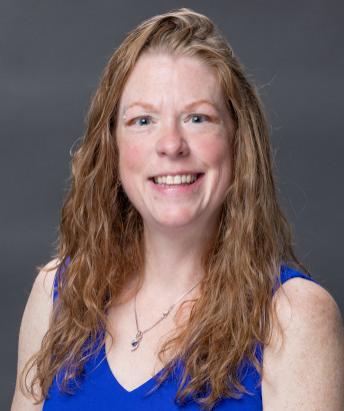
- amber.mccann@UND.edu
- 701.777.5790
-
Upson II Room 365 & 366
Grand Forks ND 58202-8155
- allie.pasch@UND.edu
- 701.777.3231
-
Upson II Room 160L
Grand Forks ND 58202-8155
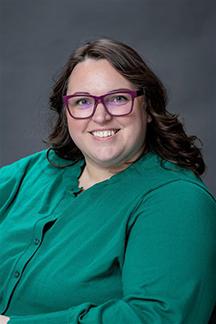
- lacey.e.wilkerson@UND.edu
- 701.777.2180
-
Upson Hall II
Grand Forks ND 58202-8155
Send an email to your Grant Analyst, and they will look into it and report back.
If you need to request a modification to a project after initial setup, you can either fill out the form here or send your Grant Analyst an email with letting them know which project you need to modify, what modification needs to be made, and a short technical description of why modification is requested they can fill out the form and send to relevant parties for signing. For this form, list Dan Laudal as the Dean. Your Grant Analyst will then coordinate with Sherry and Chassi to make the changes official with the sponsor.
A No-Cost Extension (NCE) is the extension of a project period without additional funding from the sponsor. If a project’s end date is approaching but the Principal Investigator (PI) identifies that the research needs to continue, a NCE allows the end date to be extended. Extensions may be requested only for programmatic reasons. However, sufficient funds must be available to support the project for the additional period, including the support of committed effort. Some sponsors may request information about the amount of funds remaining in the account and others may request a budget indicating how funds remaining at the end of the original project will be spent during the extension.
If you need to request an NCE, send your Grant Analyst the following info and they will coordinate with Sherry and Chassi to make the request to the sponsor.
- UND Award #
- Sponsor Name
- Requested End Date
- Justification for Extension
- Amount of Anticipated Funds after Commitments (i.e. what amount will be left at the original end date)
- Inclusion of Subaward Institutions to which UND will Execute an Amendment for a NCE if applicable
Useful Links and Forms
If you need to request a modification to a project you can either fill out the form here or send your Grant Analyst an email letting her know which project you need to modify, what modification needs to be made, and a short technical description of why modification is requested they can fill out the form and send to relevant parties for signing. For this form, list Dan Laudal as the Dean.
The pre-award forms link also contains other useful files such as the Temporary Spending Request and the Interdepartmental Indirect Cost Allocation.
- RSPD Budget Preparation
- RSPD Grant Preparation Resources
- SMHS Grants Management
- G&C Award Management
- Corporate Engagement and Commercialization
- Non-Disclosure Agreement Requests
If you need samples of required files (Budget Justifications, NSF Data management plans, etc.) the “UND CEM Editing and Collaboration” Teams channel has lots of info or you can request items from the Chief Business Officer or your Grant Prep Assistant.
Who to Contact?
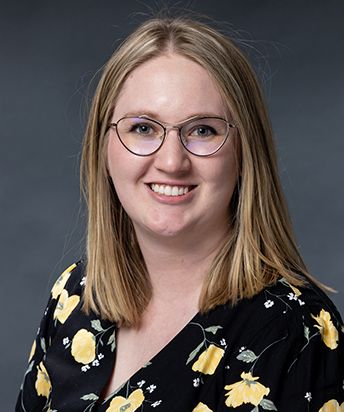
- elizabeth.o.west@ndsu.edu
- 701.777.6712
-
Upson II Room 160N
Grand Forks ND 58202-8153
- Creating or reviewing proposal budgets
- Finding, filling out, uploading proposal forms and documents
- Creating workspaces or questions on Novelution, Grants.gov, Research.gov
- Coordinating with Sub or Pass Through/Prime Entities during proposal development and submission
- ABS form set-up
Responsible for Pre-Award For
- Energy & Minerals Initiative
- Artificial Intelligence Research (AIR) Initiative
- Center for Cyber Security Research (C2SR) Initiative
- Materials and Manufacturing Research Center
- ND Center for Water Research
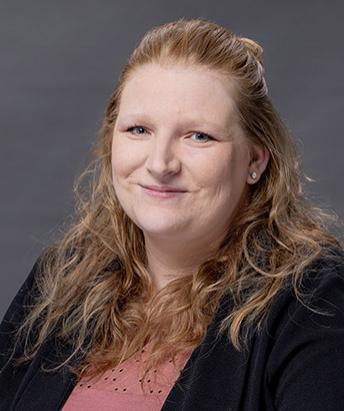
- carla.mangino@UND.edu
- 701.777.3229
-
Upson II Room 160I
Grand Forks ND 58202-8155
- Creating or reviewing proposal budgets
- Finding, filling out, uploading proposal forms and documents
- Creating workspaces or questions on Novelution, Grants.gov, Research.gov
- Coordinating with Sub or Pass Through/Prime Entities during proposal development and submission
- ABS form set-up and modifications
Responsible for Pre-Award For
- SIRI Initiative
- Civil Engineering Department
- All proposals not connected to an initiative

- frederick.gietzen@UND.edu
- 701.777.3147
-
Upson II Room 160J
Grand Forks ND 58202-8153
- Analysis of grant expenses and budget progress
- Grant Funding Changes
- Payroll corrections or projections
- Contract Modifications
- Project Reporting
- Cost Center Management
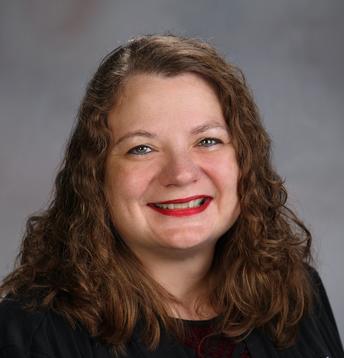
- anna.crowell@UND.edu
- 701.777.3219
-
Leonard Hall Room 322A / B
Grand Forks ND 58202-8358
- Editing/line-editing requests (scientific content and grammar)
- Examples of documents (Budget justification, Postdoc mentoring plan, Data management plan)
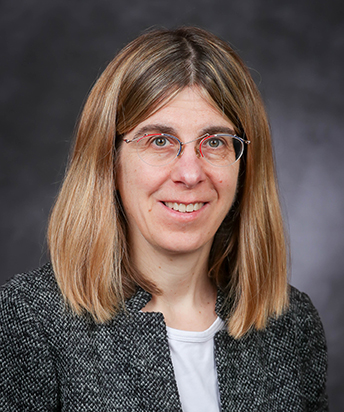
- karen.katrinak@UND.edu
- 701.777.2505
-
Grand Forks ND 58202-6026
- Submission of proposals to sponsor
- UND’s Authorized Organizational Representative (AOR)
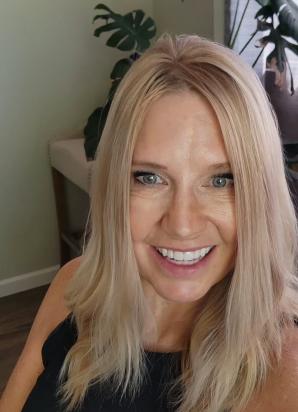
- sherry.zeman@UND.edu
- 701.777.4915
-
Grand Forks ND 58202-8367
- Award negotiations

- chassi.herman@UND.edu
- 701.777.0771
-
Grand Forks ND 58202-7306
- Set up of new awards
- Status of project modification (e.g. No-Cost Extension)
- Financial reporting and invoicing of sponsors
- Grant close-out
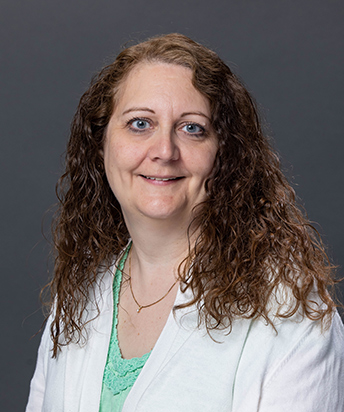
- barbara.gangelhoff@UND.edu
- 701.777.3309
-
Upson II Room 165C
Grand Forks ND 58202-8155
- Faculty/Staff New hire recruitment, setup and onboarding
- Graduate Assistant hiring process
- Temporary and Student Employee hiring process
- Payroll Management
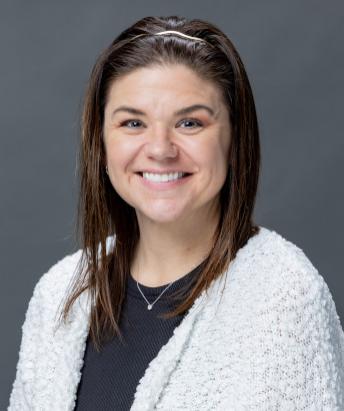
- tonya.parton@UND.edu
- 701.777.3411
-
Upson II Room 160M
Grand Forks ND 58202-8155
- Tuition remission and tuition waivers
- Financial Administration
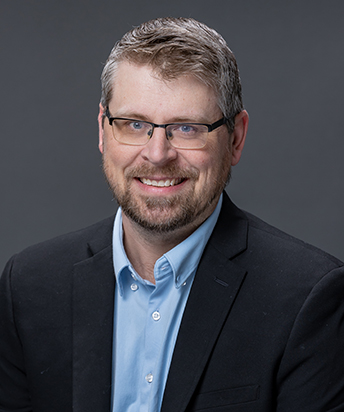
- daniel.laudal@UND.edu
- 701.777.5745
-
Collaborative Energy Complex Room 246A
Grand Forks ND 58202-8153
- Internal cost share requests
- College-level approvals
- Any other questions or concerns not addressed on this page